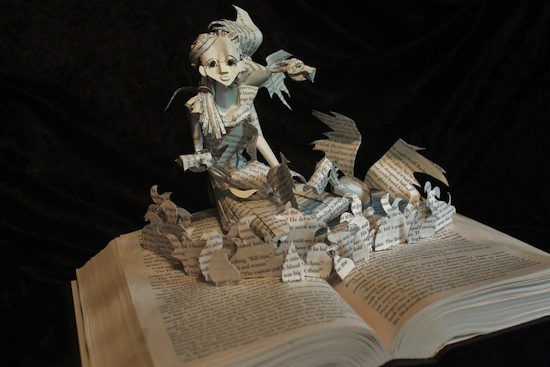Character Growth
By Anthony Casperson
6-13-20
One author of books I like to read has repeatedly been asked why he is so mean to his characters. Why do they have to go through so many difficulties throughout the story?
His response, “Because it’s my job,” might sound a little mean. Especially when paired with the maniacal laughter he emits after the statement. Though this response is mostly a joke, there is something true to those words. And no, I’m not calling him sadistic.
Stories that have long-lasting effects on the reader (those meant for more than merely momentary escapism and entertainment) place a character in situations that force them to face some lie they’ve internalized so that they can grow into a new understanding of the truth of the world. The author presents difficult situations in order to help the character grow.
Without the “mean” placement of the character in the problematic situations, they would never become the people whom the author desires for them to become, the people they were created to be. And without becoming those people, the world around the characters would have to change. The events intended by the author wouldn’t happen as they were meant to if the character didn’t grow out of the lies they’d bought into previously in their lives. The whole story would have to change if those difficult situations didn’t happen.
Actually, the whole story wouldn’t even need to be written if the difficulties were removed from the character’s life. If there’s no adversity in the life of the character, there’s no reason to relate the tale. Why read about a person whose life is as normal as someone living on your own street?
The troubling events of a story are not only meant to entertain, but to call the audience to something greater. The very lie to which the character clings might just be ours (or one like it). This voyeuristic face-to-face with the lie calls the audience to grow as well as the character. Their growth inspires ours.
Therefore, the job of the author who inspires their audience to grow along with the characters requires them to place these difficult situations in front of them. It is their job to be mean to their characters, not because they’re sadists who love to see people in pain, but because the fallen human condition requires us to face difficulties before we’re willing to seek change.
We like believing the lies. They make life easier. That’s why we believe them. And that’s why drastic things have to happen before we face the lie and overcome it. For those fortunate enough to see it, these difficulties don’t have to come in the form of experiencing it for ourselves. The problems of others can force us to bear witness to our own lives as well, if we open our eyes to them.
While imaginary creations have a different relationship with their author than we do with the Author of the universe, there are similarities when it comes to God allowing difficulties in our lives.
God works everything for his glory and our growth. He gets the honor and we become more like him. The problems of life aren’t because God is mean or absent. They are allowed to exist because without them, we would never become the people we were created to be. God knew when he created the world that he needed someone with our worldview, someone who would face the lie as we would, in that exact location and time.
It could be because our overcoming of the lie will make major changes in the world. Or it could even be that our response will inspire others to be the change in the world.
This past week, I was reminded of the life of Joseph found in the book of Genesis. The favored son of Jacob and hated brother of those who would one day give their names to the tribes of Israel. Plotted against by his brothers. Sold into slavery by them. Falsely accused of sexual misconduct with regard to his master’s wife. Sent to prison. Forgotten by a person to whom he’d given hope of freedom when they were imprisoned along with him.
There were many difficulties in his life. The story sounds kinda mean when we look at it like that. But when Joseph was called by Pharaoh to interpret a dream (because the previously imprisoned advisor finally remembered Joseph two years later), his interpretation and counsel garnered him favor with the Egyptian leader. Joseph became second in command over all of Egypt, saving the land and their neighbors from famine and the many deaths that would have caused.
When those same brothers who had sold Joseph into slavery came, asking for food, he showed love by aiding them in their own difficulty. Eventually telling them he was their brother, Joseph led his family down to Egypt so that they could thrive alongside him.
Later on in life, after their father died, the brothers went to Joseph to make sure he wouldn’t seek their harm now. And Joseph responds, in Genesis 50:20, “What you meant for evil, God meant for good, so that many should live, as they do now.” Joseph saw that all of the difficulties, which I’m sure felt mean at the time of experiencing them, allowed him to be in the place where he could save an entire kingdom and beyond.
Without those difficulties, it would have been a very different story.
The problems in our lives will never really be welcomed, but we can look at them in hindsight as something used by God for his glory, our growth, and possibly the well being of others around us. The Creator allows the difficulties so that we can overcome.
Let’s make our tale worth retelling.




